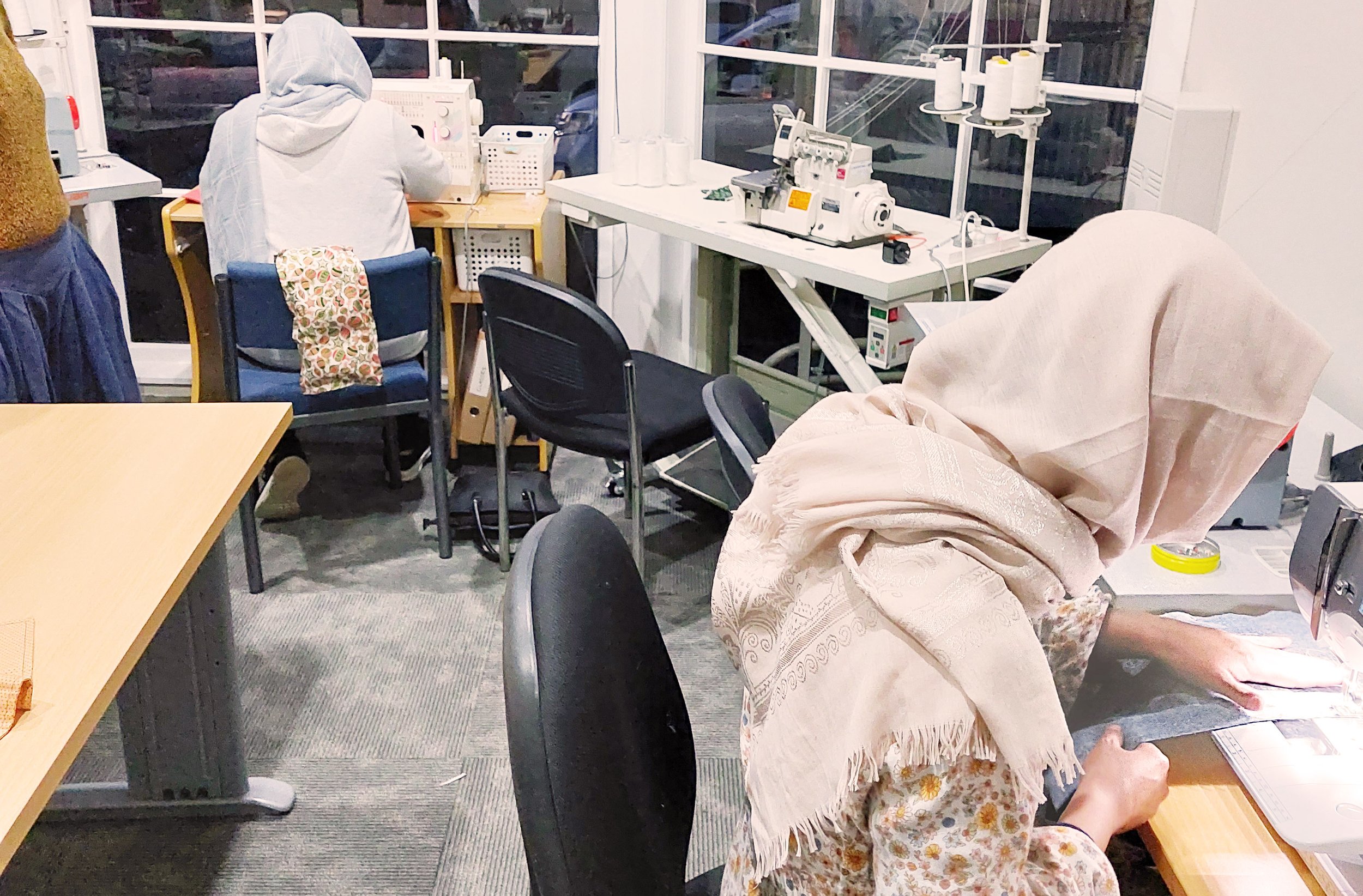NFACT – Connection and Independence through Micro-Enterprise
New Settlers Family And Community Trust (NFACT) operates with a firmly embedded ‘by refugees, for refugees’ philosophy. It provides flexible, culturally and linguistically appropriate services for refugees and people from refugee-like backgrounds. Its vision is to help new settlers and their families thrive within their communities and wider society through a range of targeted community-based services and initiatives.
NFACT’s mahi is far-reaching and highly impactful for the communities it supports. We asked Fahima Saeid, CEO and Karen Newborn, Micro-Enterprise Manager about some of the achievements the team is most proud of.
“As an organisation, we are most proud of the work that we did with 1,500 Afghan Evacuees who came here after the Taliban takeover. We took a holistic approach based on the Māori Model of Te Whare Tapa Wha to provide this large group with resettlement, wellbeing, and creative skill-building support to make sure that they have a better chance of successful resettlement in Aotearoa New Zealand,” says Fahima.
Karen highlighted some of the great mahi that has occurred with Afghan new settler women in the micro-enterprise space.
“The micro-enterprise space has opened up creative opportunities and mental health wellbeing for participants. We began with running sewing classes for our Afghan new settler women. Sewing in Aotearoa New Zealand is quite different from sewing in Afghanistan. Afghan women are extraordinarily talented with hand sewing, making beautiful hand-embroidered garments in their traditional dress. They also can look at a person, and make a dress to fit, without a pattern or tape measure.
Our classes opened up experience on electric sewing machines and taught the English language words relating to sewing. We also teach the use of tape measures, patterns, cutting, pinning, and sewing with a high level of finishing,” says Karen.
Besides gaining practical skills, the Afghan women have also found connection with other women from similar situations and backgrounds with whom they can share stories and experiences, and they are now part of a circle of supportive new friends.
“We have also witnessed the women’s increased self-esteem and confidence. For many women, just getting to the classes is a mammoth learning experience as they negotiate bus timetables and accessing information of routes to our learning hub. For many, their lack of English is a huge barrier, and they are very shy at speaking English when they first come to the classes. As time progresses, we see an opening up of verbal communication and personal pride when they achieve their sewing milestones. Sewing is a great way to break down language barriers,” she says.
The sewing classes have led to workshops which are used to develop products to sell at markets which NFACT holds periodically throughout the year.
“The women make saleable items such as door stops, wheat bags, eye masks, bags and other craft items. Initially, we paid the makers a small percentage of money when the items sold at market, however the paperwork required became very intensive and time consuming, so now we give the women a food voucher as payment for their products they produce,” she says.
The sewing workshops inspired some of the women to establish their own sewing micro-enterprises, so NFACT has been supporting them to understand self-employment rules and regulations, including taxation.
“Last year, we partnered with another organisation, Edvance, which provided a tailored small business starter course, that ran once a week for six months. The course was well-received and interest from both men and women was high. At the end of the year, we had 25 people successfully graduate, with three women starting their part-time businesses – two in food and one in sewing.
As a result of the successful business course, we are again partnering with Edvance to provide another course in small business. They are also going to run a series of small workshops for those who completed the course last year. The course will cover the ‘nuts and bolts’ of running a business, such as writing an invoice, ordering stock, computer skills, advertising on social media, etc. Everything required to get a business up and running,” says Karen.
NFACT has big plans for its micro-enterprise mahi, and Karen is excited by what this could mean for the people the team supports.
“Our goal is to assist all refugee ethnic groups by providing a dedicated website showcasing their country of origin handcrafts. The website could include the personal stories of each maker and show the fine needlework or other art and crafts they are proficient in. The opportunity for the makers to sell their work on a dedicated ‘Refugee’ site would be a win/win. Not only would they have the opportunity to sell their handmade items, but they can become part of a ‘community’ that is dedicated to promoting their arts and crafts to the Aotearoa New Zealand public in a safe space.
A website would help not only the makers, but a small percentage of the profit would go to NFACT. This would help NFACT to become more sustainable for the future and allow us to continue on our journey of developing former refugees’ skills. We would then be ‘walking the talk’ of micro-enterprise, by creating our own independent organisation.”




